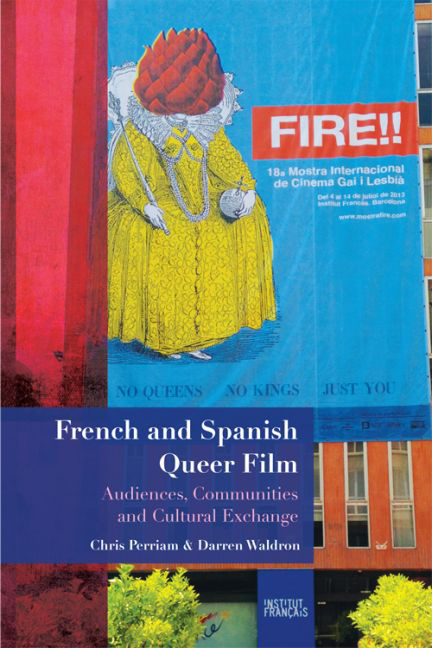Book contents
- Frontmatter
- Contents
- List of Figures
- Acknowledgements
- Introduction
- 1 Cultural Crossovers
- 2 LGBTQ Film Festivals and their Audiences
- 3 LGBQ Themes and Responses
- 4 Trans Issues
- 5 Audiences and Critics: Dialogue and Disagreement
- Conclusion
- Appendix I: Standard Questions for Respondents
- Appendix II: Project Web Page
- Filmography
- References
- Index
5 - Audiences and Critics: Dialogue and Disagreement
Published online by Cambridge University Press: 12 September 2017
- Frontmatter
- Contents
- List of Figures
- Acknowledgements
- Introduction
- 1 Cultural Crossovers
- 2 LGBTQ Film Festivals and their Audiences
- 3 LGBQ Themes and Responses
- 4 Trans Issues
- 5 Audiences and Critics: Dialogue and Disagreement
- Conclusion
- Appendix I: Standard Questions for Respondents
- Appendix II: Project Web Page
- Filmography
- References
- Index
Summary
Where Chapters 3 and 4 interpreted audience responses collected at festivals, and often to relatively low-profile films, this chapter turns to a slightly different space. The focus now is on queer fictional films and directors who have attracted critical attention from established and professional reviewers in France and Spain. We survey the reception of two of the most controversial and talked about French queer films in recent times – 2013 Palme d'Or winner La Vie d'Adèle (Abdellatif Khechiche, 2012) at Cannes and the Queer Palm winner of the same year L'Inconnu du lac (Alain Guiraudie, 2013) – and consider how the reactions of mainly LGBTQ viewers and online critics diverge from and converge with received critical evaluation. We adopt a similar contrastive and comparative approach in an analysis of the images and reputations of mainstream directors whose work mobilises queer aesthetics, affect, sensibilities and tastes but who, to differing degrees, have achieved canonical status in both countries: André Téchiné, François Ozon and Pedro Almodóvar. Queer films such as La Vie d'Adèle and L'Inconnu du lac have become, as Rosalind Galt and Karl Schoonover write, ‘major players in contemporary world cinema’ (2014), while Almodóvar, to take one of the directors in question, partly thanks to his enthusiastic reception among some revered French critics writing for highbrow film magazines, has become a key global figure, whose audience share, in France as elsewhere, can rival and even surpass that of Hollywood and domestic blockbusters. The discussion of Almodóvar leads into a study of the responses, again comparing reviews by established and professional critics with occasional or amateur LGBTQ critics, to La piel que habito (2011) – released under its original Spanish title in France – and Los amantes pasajeros (as Les amants pasagers) (2013), the two films he released during the time-period of our project.
The chapter engages with forms of cinephilia and politically or socially informed film reception. It attempts to show how the finely detailed and often immediate responses by mainly LGBTQ audiences in questionnaires and in discussions (in blogs and forums) nuance the equally finely detailed but close technical analyses of academic and high journalistic writing.
- Type
- Chapter
- Information
- French and Spanish Queer FilmAudiences, Communities and Cultural Exchange, pp. 137 - 159Publisher: Edinburgh University PressPrint publication year: 2016



